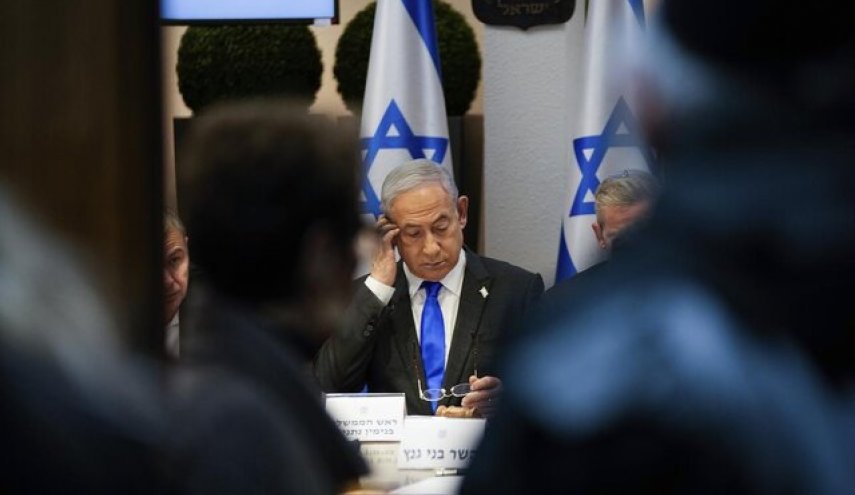Hassan Hanizadeh said in an interview with the website of the Strategic Council on Foreign Relations: “So far, more than 30,000 people from Gaza and Rafah have been martyred and more than 70,000 others have been injured, and 1.5 million are displaced.”
According to this expert, the prolongation of the Gaza crisis happened because Benjamin Netanyahu, the Prime Minister of the Zionist regime, tried to win a field victory by killing the people of Gaza during the last five months. However, the resistance of the Palestinian fighters and the people of Gaza and Rafah showed that the barbaric bombardment of civilians would not force the people of Gaza to surrender to the Israeli army.
Hanizadeh added: “International pressures, massive demonstrations, and the outbreak of a rift between the army generals of the Israeli regime and Benjamin Netanyahu’s government caused this regime to enter into negotiations with regional and global actors to establish a ceasefire.”
He emphasized: “On the other hand, the existence of 140 Israeli and foreign prisoners with Hamas has fueled internal differences between the military and political leaders of the Zionist regime, for the release of these prisoners as soon as possible.”
Referring to the desertion of more than ten thousand Israeli reserve soldiers from the army and the preparation of nearly one million Jews with dual citizenship to leave the Occupied Territories and immigrate to Western countries, this expert described the conditions for the continuation of the war in Gaza as difficult and said: In recent weeks, at least six rounds of negotiations between the security representatives of the Zionist regime, Egypt, Qatar, Jordan and France have taken place in different parts of the world, and finally, a preliminary agreement was reached to establish a ceasefire and exchange prisoners from both sides.
Hanizadeh explained: “Accordingly, on the eve of the holy month of Ramadan, 40 Israeli prisoners will be exchanged for the release of 400 Palestinian prisoners held by the Zionist regime, and a one-month ceasefire will be established in Gaza.”
The expert on Middle East issues said about the plans of the Zionist regime for the future of Gaza: “Regardless of the results of the breath-taking negotiations between the actors of the Gaza crisis, there is still a series of ambiguities surrounding the Zionist regime’s roadmap for the future of Gaza after the end of the war.”
He added: “Speculations are that after the end of the Gaza crisis, the Zionist regime is going to build a security road around this city and completely destroy the tunnels created by Hamas and Islamic Jihad.”
Hanizadeh explained: “According to Tel Aviv’s road map, all Hamas and Islamic Jihad leaders should be exiled from Gaza and Rafah to the countries of the region, and Palestinian fighters should be disarmed. In fact, the Zionist regime is trying to repeat the same scenario it implemented in Beirut in 1982 to expel Fatah fighters once again in Gaza.
According to this expert, in 1982, the Zionist army under the command of General Ariel Sharon, one of the commanders of the Israeli military at the time, after the siege of Beirut, announced the expulsion of all Palestinian fighters living in Lebanon as a condition for the siege to be defeated, which happened that year. Now, Benjamin Netanyahu has made the withdrawal of the leaders of Hamas and Islamic Jihad from Gaza and Rafah as a condition for establishing a lasting ceasefire to make up for the repeated defeats of the Zionist regime’s army in the Gaza war.
Regarding possible future scenarios, Hanizadeh said: “Ultimately, it seems that the Zionist regime intends to turn Gaza into a ruined and defeated city, similar to what happened to the two Japanese cities of Hiroshima and Nagasaki in World War II. Benjamin Netanyahu’s final scenario for Gaza City will definitely be to jointly manage Gaza, Rafah, and Khan Yunis with the self-governing organizations.
He added: “Accordingly, any entry and exit of residents outside of A
“These three cities are under the joint supervision of the Israeli regime and the self-governing organizations, and these 3 cities will be managed under the supervision of the Zionist army for a long time in terms of security.”
He added: “Accordingly, any entry and exit of residents outside of these three cities will be done under the joint supervision of the Israeli regime and the Palestinian Authority, and these 3 cities will be managed under the supervision of the Zionist army for a long time in terms of security.”










0 Comments